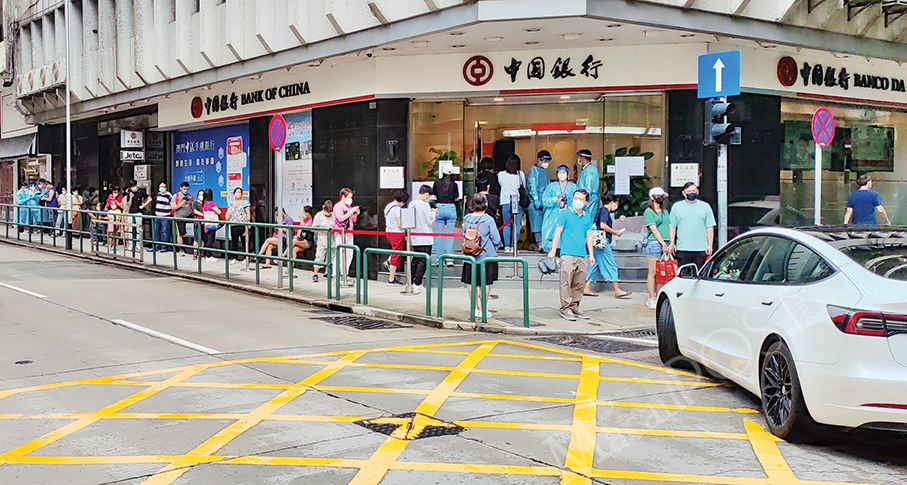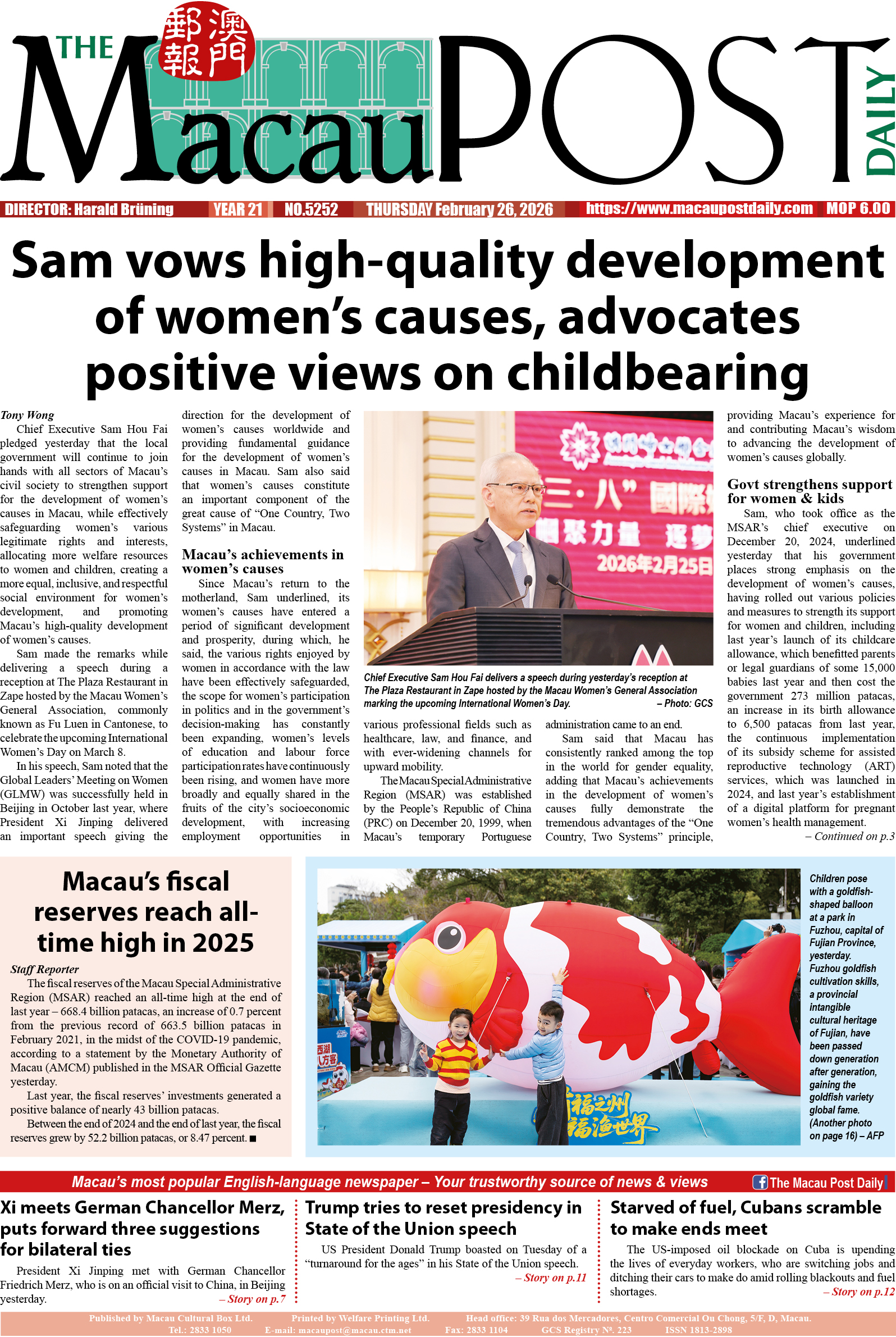Two local bank employees shared their thoughts with The Macau Post Daily yesterday about the effects of the COVID-19 pandemic on the banking sector and civil society.
The interview was conducted online last night.
The male interviewees surnamed Fong and Wa work for two different local banks. Fong works in the customer service department while Wa works as a teller. Since the COVID-19 outbreak, both have been working in the office and from home on shifts.
Banking sector during the pandemic
Fong said that his bank has halved its operational branches this week. He underlined that the goal of this policy is to limit the risk of COVID-19 transmission and allow more employees to work in the same branch. “The bank needs manpower to check customers’ Health Codes before they enter,” he said, adding that “most people come here because they don’t know how to use online banking, or they need to cash cheques.”
Wa said that besides the elderly who are not used to online banking, his bank serves migrant workers the most because many of them require to transfer money to their families back home, or they are not familiar with the banking systems. “Some employers do not assist in opening bank accounts for their short-term migrant workers, so the employees have to resort to cashing cheques,” said Wa.
When asked whether the banking sector has been affected by the pandemic, Wa said that every sector has been affected in some way or another, but the banks have not been hit the most compared to other businesses, adding: “The most important business is not done in the daily activities at the local branches with customers, providing banking services to big companies is much more profitable in the banking business.” Nonetheless, he pointed out that if the pandemic persists the banking system will eventually be affected more seriously since fewer people and businesses will borrow money from banks.
“I think that the reason why the branches are open again this week is part of their social responsibility to serve customers. The extra operational costs and risks during the pandemic are obvious, but we have to provide the services the customers need. The other point is that opening branches in difficult times certainly boosts our bank’s image with the public,” said Wa.
Banking employee experiences
“Compared to other sectors, I think that banks are relatively more stable and I am not worried about losing my job due to the pandemic,” Wa said, adding, “Even though I have been working less during these two weeks, I still receive the same benefits.”
Fong agreed with Wa, underlining that while the local economy has stagnated, banks continue to be important to local society.
Banking sector prospects
“Even though the banking sector is solid in Macau, the pandemic definitely affects local banks to develop their businesses in other regions, the mainland in particular,” Fong said, adding, “In early 2019 doing business in the Greater Bay Area was a very promising future for the banking sector, but since the pandemic it has not been mentioned anymore, but most of us are happy that we can hold our ground.”
For Wa, decentralised finance threatens the banking sector the most. “Decentralised finance means that instead of bank transfers, financial technology– cryptocurrencies–is employed for transactions. I think the pandemic has encouraged many to start using cryptocurrencies and this might replace banks in the future,” said Wa.
Snaking queues formed outside local bank branches when they reopened on Monday. Queues could still be seen yesterday, but not as long as two days previously. Macau’s banks were closed for two weeks after the current outbreak of COVID-19.
Macau detected the outbreak’s first case on June 18. In response to the government’s swift action to battle the outbreak, local banks closed for two weeks starting on June 20. However, they are currently still only running limited services.

This photo taken on Tuesday shows a long queue in front of a Bank of China (BOC) branch in Rua do Campo. Photo: William Chan









